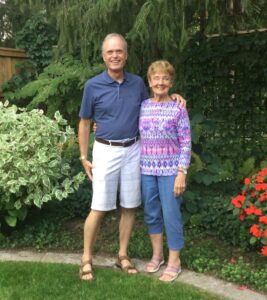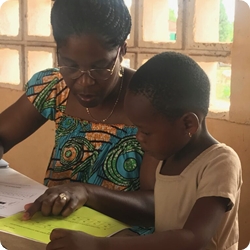Interest in SET comes from a diversity of supporters with a range of different reasons for their donations. In this and subsequent blogs we want to recognize the generosity of all by regularly featuring some of our donors and their interest in SET. Through these profiles we hope to deepen the understanding of SET’s purpose and values. Although we choose some SET contributors to profile, we invite everyone who would be willing to be featured to contact Heather Barclay at haasbarclay@hotmail.com .
Hilary and Burton: The Relationship of Individual and Community
Well-known in their own community as generous, creative, and idealistic, Hilary and Burton Moon live their values.

Their gift to SET provided funds to build the cabinetry housing the 20 Little Libraries that Victoria, British Columbia Rotary Clubs donated (Click here to read our website blog article about SET’s Little Libraries)
The key question the Moons ask themselves before committing to an organization: “Does the organization add to the beauty and goodness of life?” This stresses the interdependence of the individual and the community; the goodness created by an agency’s work through individuals always results in a better, more beautiful community.
“Take SET, for example,” Burton explains, “each child who learns to read will use that skill to improve their community through the ability to meet the demands of better-paid employment. Reading gives a person a base to better understand, and even participate in, governing institutions. Such a contribution empowers the individual, which in turn strengthens their community.”
Although Hilary and Burton’s donation focus is predominantly on their own community, SET attracted their attention. Through their personal connection with Don Barclay, President and co-founder of SET, the Moons saw an ongoing example of their philosophy of giving.
As Hilary expresses it: “Education is always a big interest for us given how its improvement of children’s futures creates a solid base for the advancement of the communities in which they belong. The way that SET visualizes education, taking it from the provision of school buildings to the continuing education of teachers fits with our values.”
In addition, SET’s provision of a financial top-up to intern teachers causes those teachers to experience a rise in their worth to the community. To their pupils this self-respect models something to strive for.
Perhaps the most significant aspect of SET’s work in Togo relates to the way its mission multiplies the value of donor support. For each child who selects a book from the SET Little Library to take home, there is also a family learning. Togo has a very high illiteracy rate, especially among the rural population. The impact of becoming a part of their child’s literacy, family by family, will affect change in the culture of the local community and ideally, the whole country.
“Because through literacy, people and nations find their inner power,” Burton says with conviction.
“What could be more beautiful than that?” Hilary asks.

